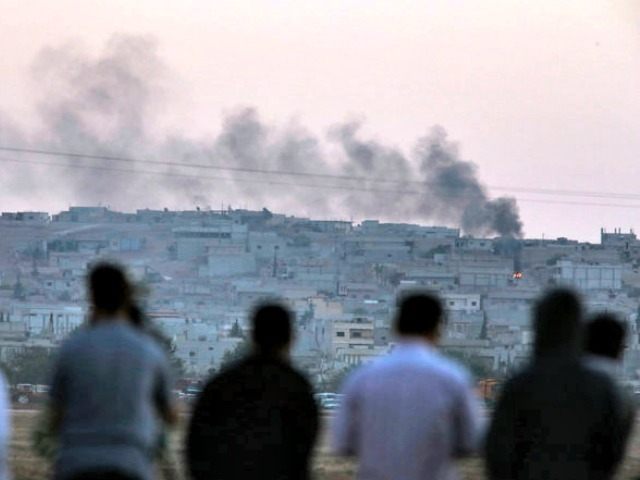The leader of the Kurdish YPG militia – the indispensable ground forces that have been holding the Islamic State at bay – reportedly welcomed the Russian bombing campaign, calling it “an important step” in the battle against ISIS.
“We can work together with Russia against IS,” said Sipan Hemo, general commander of the YPG. “We want air support against IS. We want weapons support.”
Hemo did not seem unduly concerned that Russia is only talking about bombing ISIS at the moment, while its airstrikes actually hit other elements of the Syrian opposition. “Russia should fight not only against IS, but also against al-Nusra. There is no difference between Nusra and IS – they are both al-Qaeda,” he said, referring to the group also known as Jabhat al-Nusra or the Nusra Front.
This closely parallels what the Russians have been saying about how every element of the Syrian opposition consists of “terrorists” who are advancing the interests of ISIS and/or al-Qaeda, including the “moderate” Syrian rebels the Obama Administration has been arming and training. The Kurds are nominally allied with the Free Syrian Army, but based on these quotes, they do not seem particularly outraged by Russian air strikes (and soon, Iranian and Syrian ground forces) hitting them.
“We have asked for help from several countries in the fight against IS,” added Idriss Nassan, foreign minister for the war-torn Kurdish region of Kobane on the Turkish border. “We want it from Turkey, we want it from Russia, and we want it from the United States. We are ready to co-operate with anyone who fights against IS.”
It should be noted that these quotes apparently all source back to Russian media supportive of President Vladimir Putin. However, the comments from Hemo and Nassan are not inconsistent with long-standing Kurdish pleas for more weapons and air cover to tackle the Islamic State. They have long complained about the government of Baghdad withholding weapons from them in Iraq, for example.
The Syrian Kurds have often spoken of the terrorist groups in the Syrian resistance as a far more unified force than Western analysts believe. “Simply, Jabhat al- Nusra, al- Soltan Morad Brigade and Ahrar al- Sham Movement are agents for another force in fighting Kurds, and this force or the third party gave them the orders to open this front,” Hemo said in another recent interview, naming other powerful elements of the Syrian rebellion.
In the same interview, Hemo voiced some dark suspicions about the Free Syrian Army: “It saddened us that are some in the Free Syrian Army who do not differ from Jabhat al- Nusra in their actions.”
Speaking just before Russian bombs started falling, Hemo said the solution to the Syrian crisis was no longer in the hands of Syrians; their country has become the battlefield for “a clash of titans” that is “more like a third World War, where the major powers are fighting to divide the zones of influence in the world.”
He predicted this war “may take dozens of years,” and would spread across the the entire Middle East and beyond. (Perhaps a bit ironically, he also suggested that in the aftermath of this titanic conflict, Syria would be seen as one of the safest countries, and people would want to migrate to it.)
Given that world-view, and the Kurds’ focus on ISIS, it is not surprising they would turn away from President Obama’s quagmire going-nowhere strategy and make their peace with more active Russian involvement. Russian sources have said their goal is to stabilize the Assad regime, wipe out the U.S.-backed elements of the Syrian rebellion, and leave the Western coalition with little choice but to join the Russians, Iranians, and Assad in mopping up ISIS as the last bit of business in Syria. The Kurds can find a place for themselves in that strategic vision, especially if the Russians have the good sense to actively recruit them.

COMMENTS
Please let us know if you're having issues with commenting.